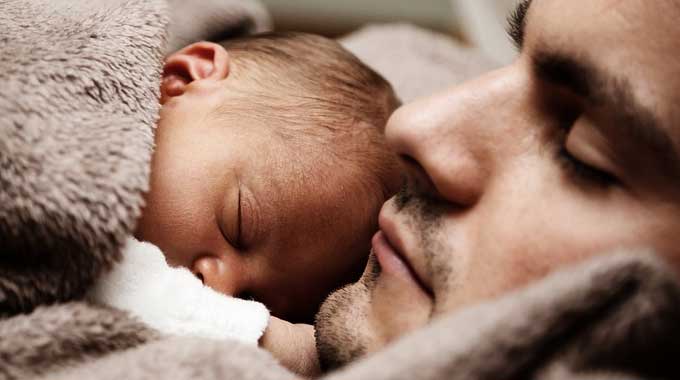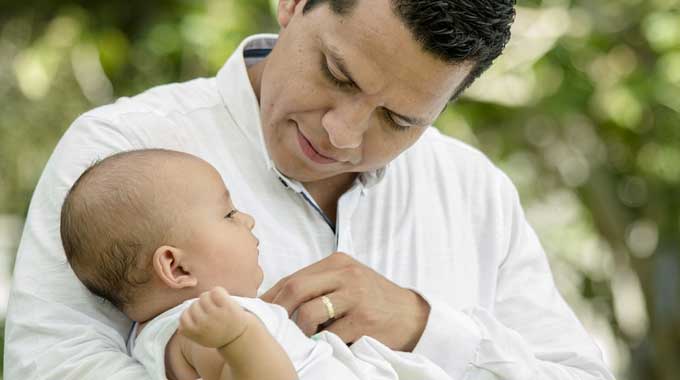Postpartum depression is a form of depression that can develop in parents after the birth of a child. Like other types of depressive disorder, postpartum depression requires medical treatment. Its symptoms can make life feel very difficult for parents at a time when they are also adjusting to other changes in their lives.
- What Is Delayed Postpartum Depression
- Symptoms Of Postpartum Depression
- Is It Postpartum Depression Or The Baby Blues
- Am I Developing Postpartum Psychosis
- What Is Paternal Postpartum Depression
- How Should I Treat Delayed Postpartum Depression
- Group Therapy
- Individual Therapy
- Medication
- Tms Therapy
- Seek Help For Postpartum Depression At GIA Miami
If you or someone you love is experiencing depression, you may be wondering what to do next. Be reassured that help is available to ease the symptoms and put parents on the road to recovery.
What Is Delayed Postpartum Depression?
Also known as postnatal depression, postpartum depression is a major mental health condition that predominantly affects mothers after childbirth. Delayed postpartum depression is only different from standard postpartum depression in that there is a longer period of time after birth when the parent is free from symptoms. The condition may not appear until 18 months after birth.
If you are worried about someone you love, you may be unsure about when their depressive symptoms began. This is because postnatal depression can last for a long time. A person could still be struggling some years after the birth of the baby. Researchers found that five percent of new mothers still had notable symptoms of postpartum depression three years after childbirth.
Every person who develops the disorder has their own experience of it and their own timeline. In order to combat postpartum depression, it is widely recommended that new mothers are observed and screened by doctors for the first six months after birth to look for symptoms. This is so that the condition can be treated as soon as it arises. Doctors also need to be aware that symptoms can continue, or appear for the first time, long after the initial six months have passed.
Symptoms of Postpartum Depression
Postpartum depression has many symptoms, and the following list is not extensive. It can be used as a reference when thinking about whether you or someone you know should get help.
- Behavioral problems such as not wanting to engage and be with their baby.
- Suicidal thoughts
- Erratic behavior and neglecting personal care.
- Generally feeling depressed or having a depressed mood.
- Feeling predominantly sad.
- Not feeling any emotion.
- Thoughts of self-harm or harming the baby.
There are many options for treating postpartum depression. If you or someone you know is showing these postpartum depression signs more than two weeks after birth or at more than a very mild level, speak to a doctor now.

Is It Postpartum Depression or the Baby Blues?
It is normal to experience some feelings of sadness after the birth of a baby. These are not necessarily postpartum depression symptoms. Most new mothers experience the “baby blues” during the first few weeks after giving birth.
The baby blues have the same symptoms as postpartum depression but are less severe and usually go away much quicker. New mothers often start to have these feelings immediately after the baby arrives or in the weeks after. This condition is uncomfortable but will usually begin to diminish quickly within two weeks and soon go away.
Baby blues partly exist due to hormonal changes in the body. After giving birth to a new baby, many of the hormone levels in a mother’s body change drastically. Many women experience weight gain and mood swings in the initial postpartum period. New parents unsure whether they have baby blues or untreated postpartum depression should get in contact with a medical or mental health professional to get advice, particularly if their symptoms are still there more than two weeks after giving birth.
It is important to know that new mothers with other mental health issues are at risk of postpartum depression. Having mood disorders, substance abuse addictions, or other illnesses such as major depression or bipolar disorder are risk factors that increase the likelihood that a person will suffer from postpartum depression.
If you are wondering whether you or someone you love has postpartum depression, it can be helpful to consider personal or family history and whether other family members have had the condition. Researchers have found that genetics may also play a part in the development of postpartum depression.
Am I Developing Postpartum Psychosis?
Postpartum psychosis and postpartum depression are not the same. Postpartum psychosis is where people begin to have delusions and hallucinations both visually and through hearing. It requires immediate medical support, and it is appropriate to dial 911. Those suffering from psychosis are at an increased risk of self-harm and suicide. If you or someone you love has similar symptoms to the following, you should seek immediate medical attention.
- Hearing voices or sounds that are not real.
- Seeing things that are not real.
- Delusions. Believing things are happening that are not real.
- Becoming paranoid and hyperactive.
- Unjustified suspicion.
Postpartum psychosis is a very serious condition. If you or someone you love is experiencing any of the symptoms on the list, get help now.

What Is Paternal Postpartum Depression?
Fathers and co-parents can also experience depression after the birth of a baby. Researchers have found that a number of risk factors make it possible that a father may experience depression after a child is born. These could include the following.
- Loss of a child in a previous pregnancy.
- The parent believes that their parenting skills are not good enough.
- Difficulties in the relationship with the child’s mother.
- Difficulties in the relationship with the baby.
- Fears about how to financially support the child.
It is important for fathers and co-parents to seek medical support if they experience the symptoms of depression after a baby. New parenthood is a major adjustment for both parents and can bring up other feelings about past family difficulties and losses.
How Should I Treat Delayed Postpartum Depression
Postpartum depression is a mental illness, and you or your loved one deserve treatment to recover. Do not allow untreated postpartum depression to continue, there are many options to help a person get better.
Group Therapy
In group talk therapy, people with similar problems sit down with a healthcare professional to get professional and emotional support. Listening to people with similar experiences discussing how they feel can give you a sense of comfort that you aren’t the only new parent that feels this way.
In order to decide whether group therapy is an appropriate treatment for you, you should speak to a doctor or psychologist about your depression. They will be able to help you decide whether group therapy would benefit you more than one-to-one therapy. They can also tell you which groups are available in your local area.
Individual Therapy
Individual therapy will often include many different techniques in order to give the person the tools to manage their mental illness. One of the most common talk therapies is cognitive behavioral therapy, also known as CBT. Cognitive behavioral therapy works on the basis that a person’s thoughts, feelings, and actions are all interconnected. It teaches that by changing one of these, a person can alleviate their symptoms and deal with depression.
Cognitive behavioral therapy usually includes relaxation training to control negative emotions, exposure therapy to get used to difficult situations, and thought recording to think through negative situations and how they can be better dealt with.
Medication
There are numerous medications available for people with depression. What medicine a doctor prescribes to you or your loved one will depend on factors such as medical history, other health conditions, and whether breastfeeding is taking place.
Often other factors such as being sleep deprived or suffering from other mood disorders affect people postpartum, and there are a number of medications available to treat these as well. Contact your doctor to discuss which medications are most appropriate for you.
TMS Therapy
TMS stands for Transcranial Magnetic Stimulation. This is a non-invasive treatment where electromagnetic pulses stimulate parts of the brain to treat mental disorders. TMS has been approved by the Food and Drug Administration (FDA) for the treatment of mental health conditions such as major depression. Researchers have found that TMS can be beneficial to women who develop postpartum depression.

Seek Help for Postpartum Depression at GIA Miami
If you think that you or someone you love is experiencing late-onset postpartum depression, get in touch with GIA Miami. We are specialists in the treatment of depression. Our services include:
- TMS
- Cognitive behavioral therapy
- Group therapy
- Couples therapy
We understand that each person has their own experience with depression because of their individual medical situation and life history. When you come to us, we will ensure that your treatment is tailored to you and your needs.
Our team includes therapists, neuropsychologists, and TMS technicians with track records of providing world-leading TMS treatment.
Contact GIA Miami today to find out how we can help you or your loved one to recover from depression and move forward with life.








